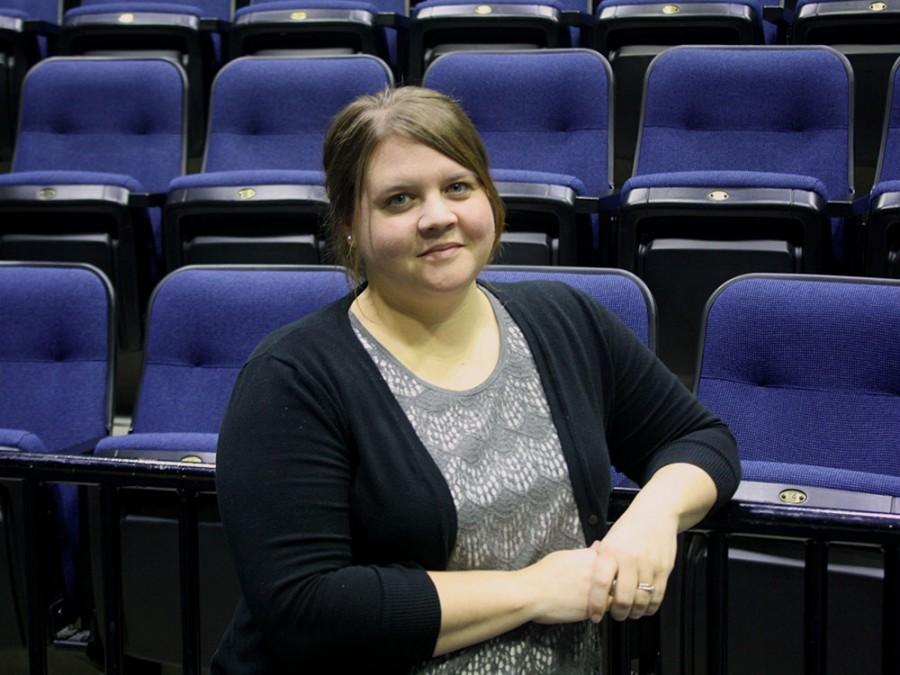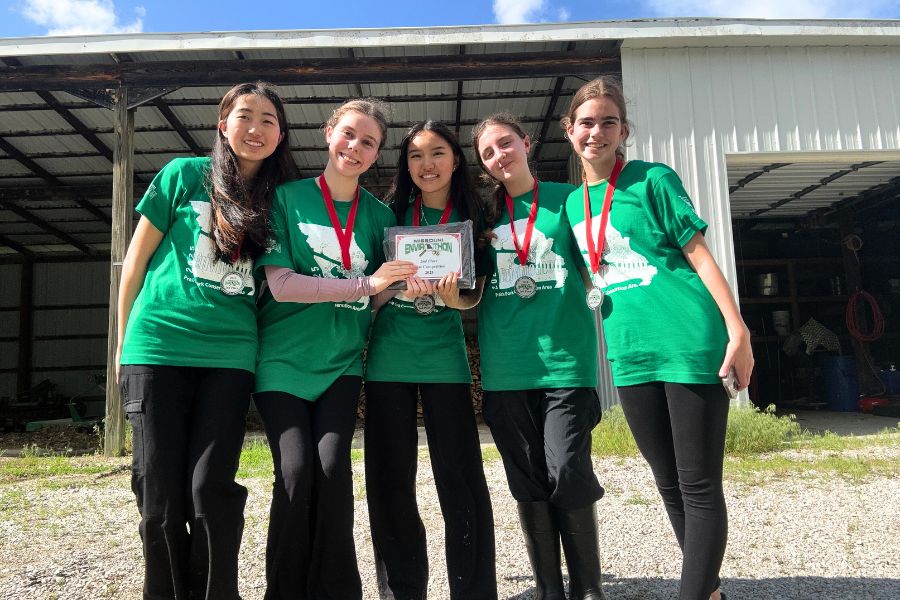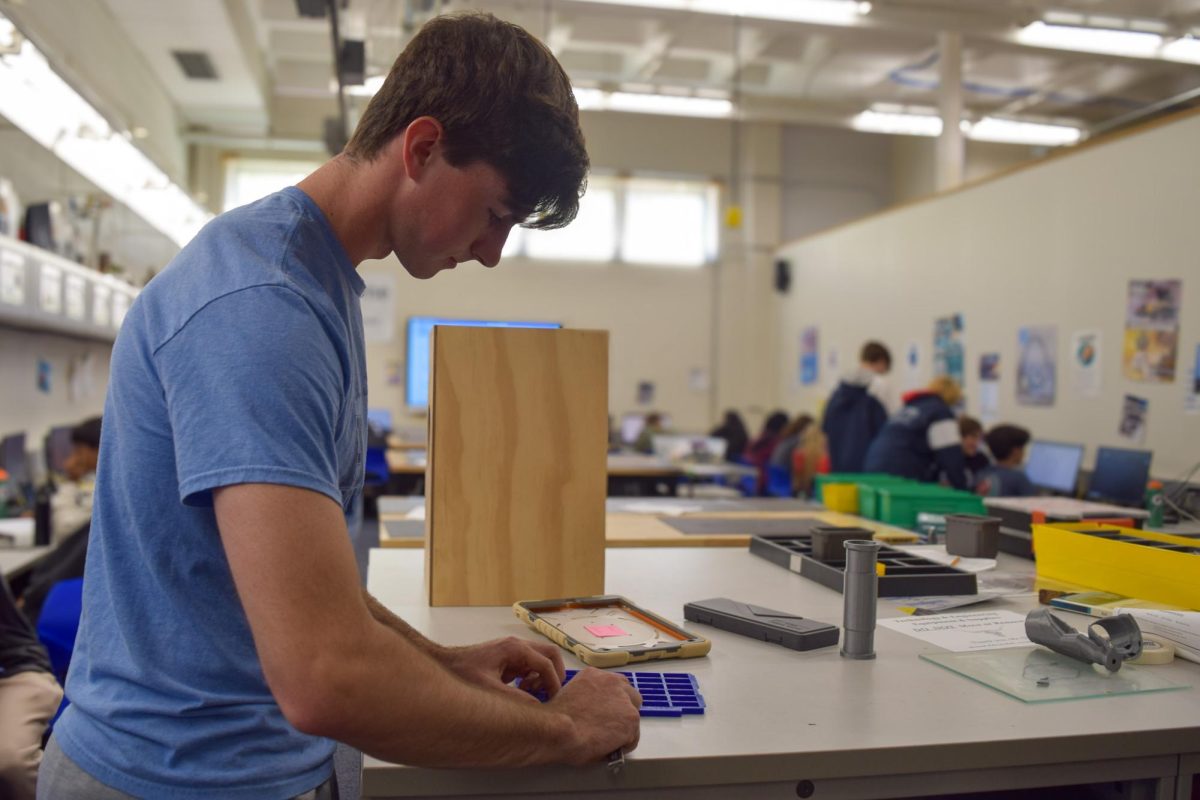Since November of 2011, Theatre Department head Amie Gossett has struggled with an autoimmune disease affecting the function of her kidneys.
“The actual name of my disease is Nephrotic Syndrome with focal segmental glomerulosclerosis. I was on heavy dose of prednisone (steroids) to suppress my immune system in order to stop the damage being done to my kidneys,” Gossett said. “My body sees my kidneys as a foreign object and produces antibodies to attack it.”
Alongside kidney complications, Gossett also was diagnosed with a disease attacking her thyroid.
“I also have an autoimmune disease that attacks my thyroid, hashimoto thyroiditis, that causes low metabolism, extreme mood changes, intolerance to temperature change, fatigue, muscle and joint pain,” Gossett said. “I’m a mess!”
Gossett’s diseases has impacted her physical and emotional health.
“Being on the medication and basically living through a ‘civil war’ within my body every day, it was very taxing on my physical and emotional well-being,” Gossett said. “Daily I am impacted by extreme fatigue due to depletion of protein in my blood, aching muscles and varying blood-pressure levels. Basically, it feels like I run into a brick wall repeatedly, daily!”
After numerous visits to her doctor, Gossett was able to get her disease in remission for nearly three years.
“On Oct. 10, ironically my birthday, I was informed by my nephrologist that my protein levels had plummeted again and more than likely my disease had come out of remission. That next Tuesday it was confirmed and I was put back on immunosuppressive medication,” Gossett said.
Because of her experience with her kidney disease during the 2011 Spring production of Thoroughly Modern Millie, Gossett decided that changes needed to be made to this Spring’s show.
“Knowing what I went through before, I spoke with Patrick Mooney, the theatre assistant, and the theatre department officers and we came to the conclusion that we needed a change for this time around. We chose not to do Much Ado About Nothing because of the physical strain building the set, a USO hall in 1945,” Gossett said. “Because of my attention to detail and experience in scenic design, I have a tendency to ‘go all out’ when it comes to scenery. If we couldn’t do it the way it was intended, the officers and I decided not to do it at all.”
However, rather than completely cancelling the Spring production, Gossett, alongside Mooney and the theatre department officers, have decided on an alternate play to be performed.
“After much deliberation about possible options, Mr. Mooney, the officers and I chose to change the spring production to Our Town, which doesn’t require a set to be built,” Gossett said. “When discussing possibilities, we spoke of what would happen if we removed the comforts of a set for the actors and could showcase their acting talents. Our Town is not easier as far as acting and production value, it just simply does not have a set. Rather than relying on the set it depicts a town where they actors have to create the environment through their movements and words.”
In the mean time, Gosset is taking medication that transplant patients take in order to stop her body from rejecting the new organ. She hopes that doing immunosuppressive therapy will help postpone a potential transplant or dialysis.
“Mrs. Gossett is one of the strongest people I know. Her personal battles have always seemed to come one right after another, and yet, she handles each one with aplomb and grace,” Mooney said. “If I were to ever find myself faced with a serious illness, I would hope I could carry myself like Gossett and fight the fight until the battle was won.”



![Focused on providing exceptional service, sophomore Darsh Mahapatra carefully cleans the door of a customer’s car. Mahapatra has always believed his customers deserve nothing less than the best. “[If] they’re trusting us with their car and our service, then I am convinced that they deserve our 100 percent effort and beyond,” Mahapatra said.](https://pwestpathfinder.com/wp-content/uploads/2025/10/DSC_0018-1200x800.jpg)
![Sophomore Aleix Pi de Cabanyes Navarro (left) finishes up a soccer game while junior Ava Muench (right) warms up for cross country practice. The two came to Parkway West High School as exchange students for the 2025-2026 school year. “The goal for the [exchange] program is to provide opportunities for both Parkway students and our international exchange students to learn about other cultures, build connections and become confident, capable, curious and caring — Parkway’s Four C’s — in the process,” Exchange Program Lead Lauren Farrelly said.](https://pwestpathfinder.com/wp-content/uploads/2025/10/Feature-Photo-1200x800.png)

![Gazing across the stage, sophomore Alexis Monteleone performs in the school theater. The Monteleone family’s band “Monte and the Machine” has been releasing music since 2012, but Alexis started her own solo career in 2024 with the release of her first single, Crying Skies. “My whole family is very musical, [and I especially] love writing [songs with them],” Monteleone said.](https://pwestpathfinder.com/wp-content/uploads/2025/09/DSC7463-1200x798.jpg)
![Amid teaching a lesson to her AP Calculus BC class, Kristin Judd jokes alongside her students in their funny remarks. Judd has always enjoyed keeping the mood light in her classroom, along with on the volleyball court. “[I enjoy] that side talk where you see [or] overhear a conversation and chime in, or somebody says something funny,” Judd said.](https://pwestpathfinder.com/wp-content/uploads/2025/09/image-1200x730.jpg)
![Eyeing the ball, junior Ella McNeal poses for her commitment pictures at Clemson University. McNeal’s commitment comes after months of contact with top Division 1 soccer programs. “ It has taken a lot to get to where I am, but I know that [what] I've already been through is just the beginning, and I can't wait for what is to come,” McNeal said.](https://pwestpathfinder.com/wp-content/uploads/2025/09/IMG_4926-1200x900.jpeg)


![Senior Adam Zerega stands with senior Dexter Brooks by farm equipment. Zerega often worked with friends and family on his farm. “I've been able to go to my family's farm since I was born. I [spend] at least three weekends a month [on the farm], so I'm there all the time,” Zerega said.](https://pwestpathfinder.com/wp-content/uploads/2025/04/IMG_4872-1200x900.jpg)

